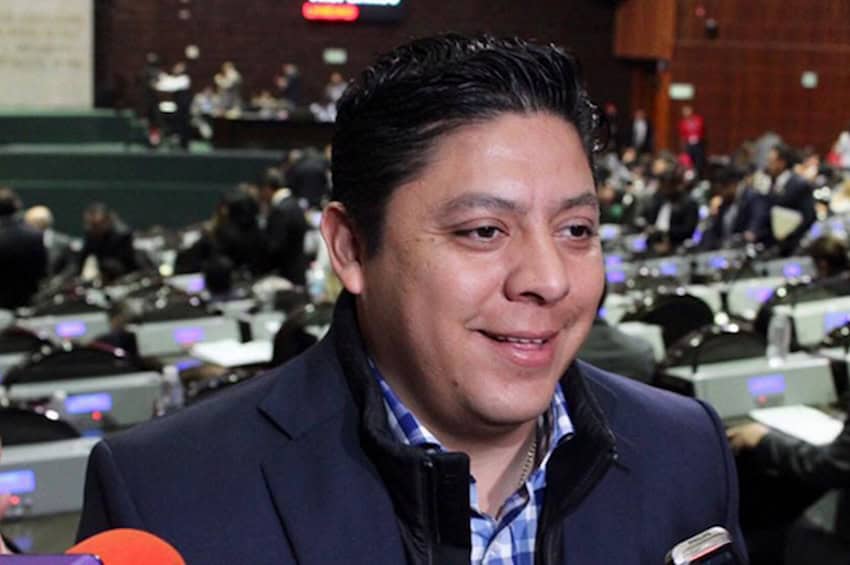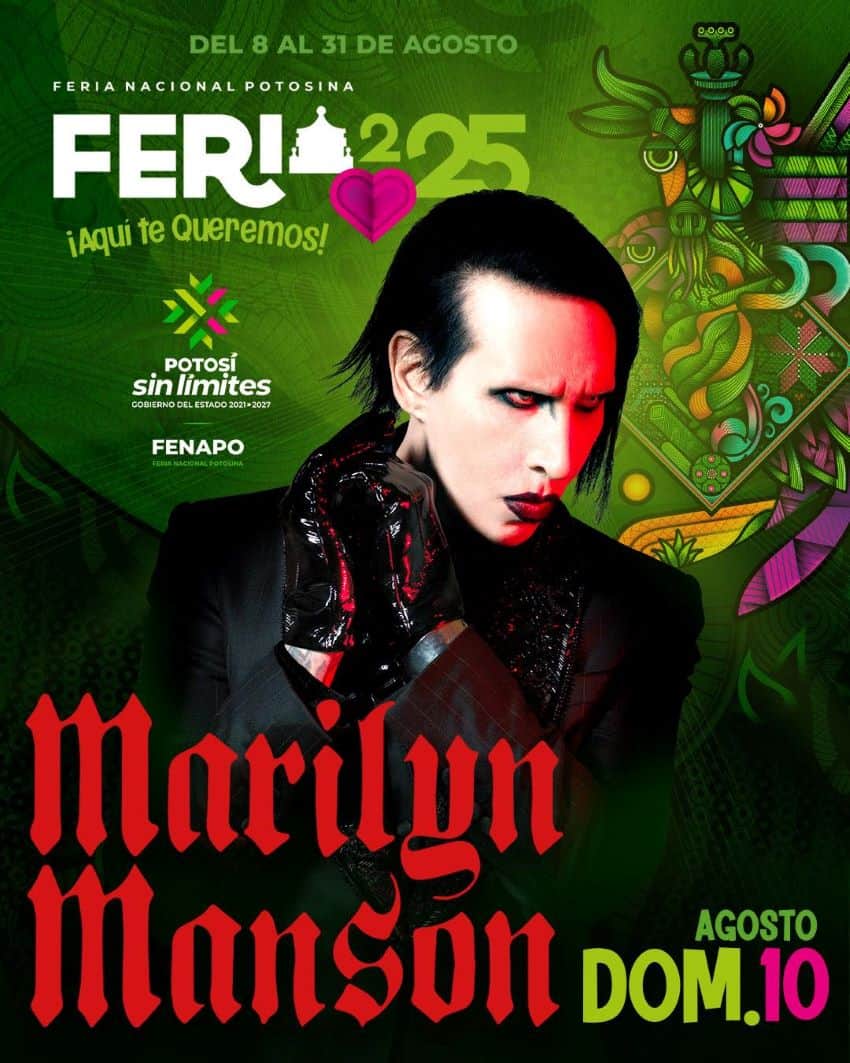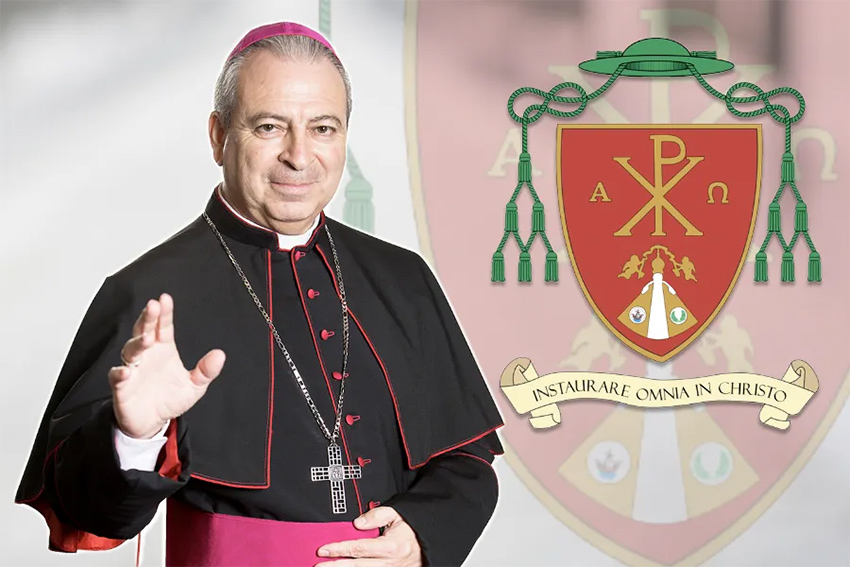Despite a formal request from a Catholic archbishop asking for the concert to be cancelled, a free performance by rocker Marilyn Manson will take place as scheduled in San Luis Potosí this summer.
Catholic Church Archbishop Jorge Alberto Cavazos Arizpe had sought the cancellation, comparing the concert to banned narcocorridos and arguing that Manson “promotes evil” and mocks religious beliefs.

But Governor Ricardo Gallardo said this week that the show will go on, and compared the cancellation attempt to the Holy Inquisition.
The concert is set for Aug. 10 as part of the 2025 Potosina National Fair (Fenapo), scheduled for Aug. 8-31 in the city of San Luis Potosí, the capital of the east-central state of the same name.
The decades-old fair — one of the oldest and most traditional in the country — includes a diverse lineup of acts, with confirmed artists such as DJ Tiësto, Belinda and Los Tigres del Norte all set to perform for free at the Teatro del Pueblo within the fairgrounds.
Manson’s inclusion in the lineup ignited a debate between the Catholic Church and state officials over cultural values and artistic freedom — which in turn unleashed a wave of memes.

Manson, 56, is an American heavy metal star who has been one of rock ’n’ roll’s most controversial figures since his breakthrough 1996 album “Antichrist Superstar,” which featured the hit “The Beautiful People.”
He was born Brian Warner in Canton, Ohio.
His provocative stage persona, shocking performances, and penchant for challenging religious and societal norms have long resonated with fans who feel alienated or misunderstood. His themes of rebellion and nonconformity have created a legion of devoted followers around the world — including in Mexico.
There’s no need to guess on which side of the Manson fence Archbishop Cavazos falls.
He argued that Manson’s presence contradicts the fair’s religious origins.
“I have sent a letter to the state governor asking him that for the good of society, and not only for the good of Christians but for society in general, the [Manson concert] should not take place,” Cavazos said last week. “We know the personality’s history, and his show would bring neither brotherhood nor joy to the people of Potosí.”

The archbishop compared Manson’s concert to narcocorridos, a regional Mexican music genre recently banned in several states for allegedly condoning violence and embracing cartel leaders.
Cavazos, who was appointed the archbishop of San Luis Potosí by Pope Francis in 2022, questioned the government’s consistency, saying, “The government itself has raised the issue of banning narcocorridos. How can we endorse the presentation of someone who represents worse things, given that he is also a person who mocks the Christian faith and people’s beliefs?”
In calling for Fenapo to remain a family-friendly event rooted in its patron saint’s legacy, Cavazos insisted it’s the Church’s responsibility to oppose “any suggestion of evil.”
In response, Gov. Gallardo defended the concert and the state’s secular principles. “We are no longer in the times of the Holy Inquisition to prohibit artistic expression,” Gallardo said.
He stressed that attendance is voluntary, just as participation in religious events is.
“San Luis Potosí is a secular state, where freedoms and beliefs are respected,” he said. “When we do the Procession of Silence, no one is forced to go; whoever wants to, goes, and thousands go. When an artist comes, whoever it may be, well no one is forced; whoever wants to, goes.”
Gallardo acknowledged the archbishop’s concerns but called for unity.
The concert will mark Manson’s first performance in San Luis Potosí.
However, he has performed in Mexico multiple times, including in 2012 on his “Hey Cruel World” tour, in 2018 on his “Heaven Upside Down” tour and last November at the Machaca Fest in Monterrey.
At the Potosina National Fair in August, admission, parking, concerts and rides will all be free. This year’s theme is “The Magic of Our Magical Towns,” featuring Zacatecas as a guest state and six San Luis Potosí towns that have a Pueblo Magico designation.
With reports from El Universal and Infobae
